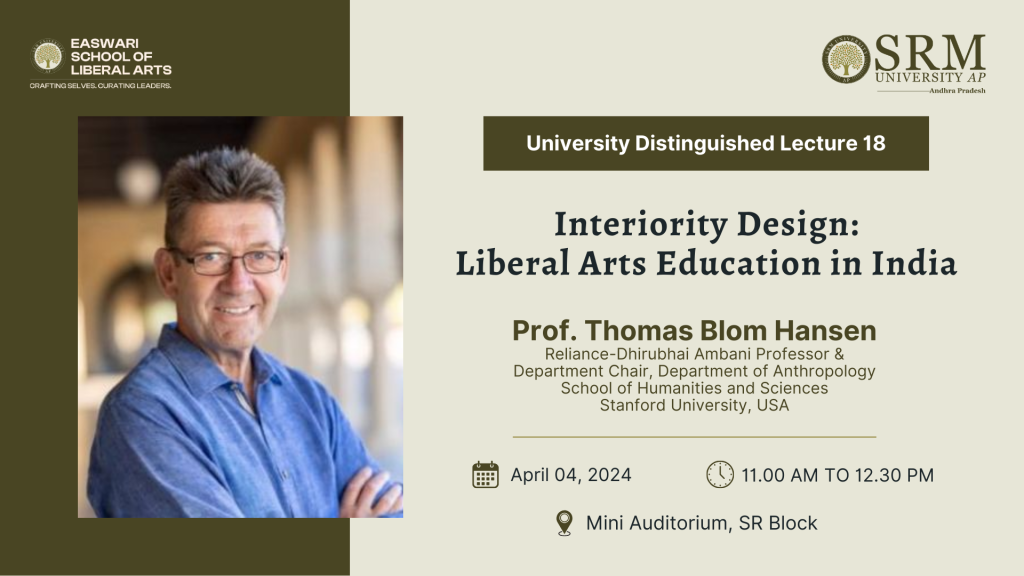- This event has passed.
Stanford Professor Thomas Blom Hansen to Deliver UDL #18
April 4 @ 11:00 am - 12:30 pm

The quest for knowledge can only lead to unparalleled success when the journey is guided by ethical morality and societal understanding. To achieve this, a sound liberal arts education proves imperative to nurture a young generation of ethically, morally and socially sensitive individuals. SRM University-AP is set to host the 18th edition of the University Distinguished Lecture on April 04, 2024. Prof. Thomas Blom Hansen, Reliance-Dhirubhai Ambani Professor & Department Chair, Department of Anthropology, from Stanford University, USA, will deliver the session on “Interiority Design: Liberal Arts Education in India”.
Join the talk to hear our distinguished speaker, Prof. Hansen deliberate and explore the complexities of liberal arts education in India!
About the Speaker
Prof. Thomas Hansen is a renowned anthropologist of political life, ethno-religious identities, violence and urban life in South Asia and Southern Africa. He is a leading academician exploring the religious and political violence in India. He has conducted extensive research in India focusing on Hindu nationalism, religious identities, religious revival and the everyday meanings of freedom.
He has written various books such as The Saffron Wave, Democracy and Hindu Nationalism in Modern India (Princeton 1999), and Wages of Violence: Naming and Identity in Postcolonial Bombay (Princeton 2001).
Abstract
In the past decade and a half, the liberal arts model of undergraduate education has become all the rage across India and other parts of Asia. In this lecture, Prof. Hansen will explore the origin of the liberal arts model in Enlightenment Europe, how it travelled to America, and how it became inextricably tied to an idea of the cultivation of a modern self, capable of autonomous, individual interior reflexivity and judgment, while framed as an invitation to join a larger national community. In this lecture, he will question: How does this model of education and self-formation sit with inherited traditions of education in India? How does its implied model of interiority and individuality sit alongside hierarchical ideas of the self and personhood structured by caste hierarchies in India? Does the idea of liberal arts education pave the way for a different and more capacious vision of what modern India might become?

